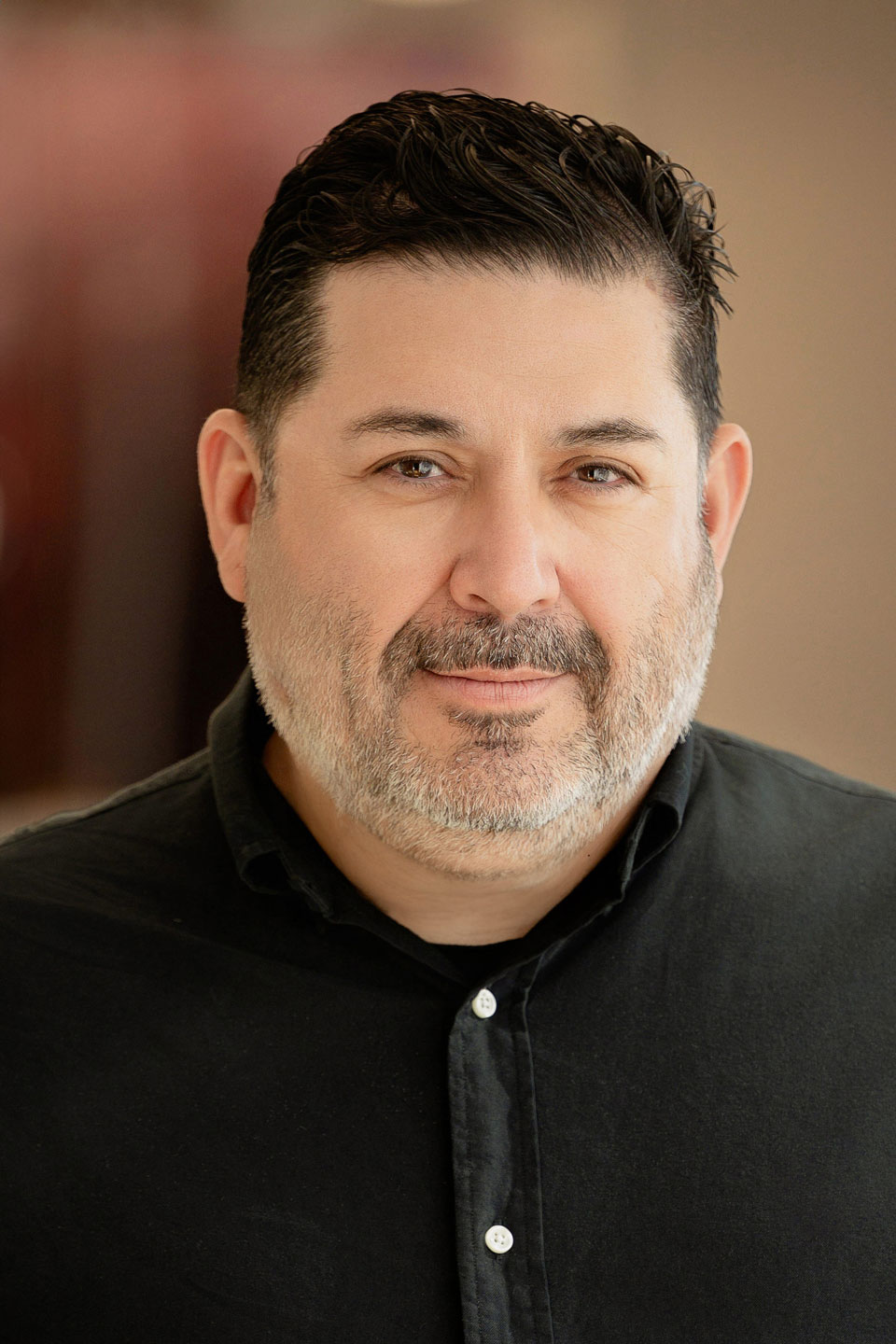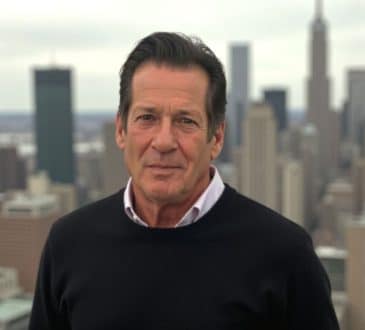Interview with Ernesto Morales, CEO of North Star Alliances

Ernesto Morales is the CEO of North Star Alliances, a Los Angeles-based firm specializing in community engagement and strategic partnerships. With over a decade of experience in business development and corporate relations, Ernesto has built a reputation for creating impactful, sustainable solutions that benefit both businesses and the communities they serve. He founded North Star Alliances in 2012 with the vision of bridging the gap between organizations and local communities, focusing on driving social impact through innovative collaborations. Under his leadership, the firm has managed over 1,500 projects for high-profile clients such as The White House, Google, Coca-Cola, and Los Angeles County.
Before starting North Star Alliances, Ernesto held executive positions at Rose Hills Memorial Park and Cordea Consulting, where he developed business strategies that catered to diverse markets. He also served as Director of Corporate Relations at Pepperdine University, generating millions in revenue through strategic partnerships with corporations like Boeing, Northrop Grumman, and Wells Fargo.
In addition to his professional work, Ernesto serves as a State Commissioner for California’s Employment Training Panel and is a board member of the Mexican American Opportunity Foundation. He is dedicated to fostering economic empowerment and social progress through his work.
Can you describe the moment or experience that inspired you to start North Star Alliances?
The idea for North Star Alliances came from years of seeing the disconnect between businesses and the communities they serve. During my time in business development and corporate relations, I frequently encountered organizations that wanted to engage with communities but didn’t know how to do it effectively. They had the resources but lacked the strategy. On the other side, communities were looking for ways to collaborate with businesses to create real impact but didn’t always have the platform or voice to do so. I saw this gap as an opportunity to create something that could bring both sides together in a meaningful way. That’s when I realized there was a space for a firm like North Star Alliances, focused on strategic partnerships that not only solve business problems but also deliver tangible community benefits.
How has your leadership style evolved since you founded North Star Alliances?
My leadership style has definitely evolved over the years. Early on, I was very hands-on, involved in every detail of the projects. As the company grew, I learned the importance of delegation and trust. Now, I focus more on empowering my team to take ownership of their work. I’ve come to understand that leadership is less about directing and more about listening—giving people the tools, the guidance, and the freedom to make decisions. This shift has been essential in scaling the business and allowing us to take on larger, more complex projects without losing quality. I also emphasize collaboration, both within the team and with our partners. When people feel heard and valued, they bring their best to the table, and that has been key to our success.
What is one of the most challenging projects you’ve worked on at North Star Alliances, and what did you learn from it?
One of the most challenging projects was working with a large municipal client on revitalizing an urban area that had been neglected for decades. The project had multiple stakeholders—local government, private businesses, and the community—and each had different priorities. Our task was to bring everyone together to create a plan that worked for all parties. The complexity of balancing these interests was challenging, but it taught me the importance of transparency and clear communication. We spent a lot of time ensuring that everyone felt heard and that their concerns were addressed. In the end, the project succeeded because we built trust among the stakeholders. It reinforced my belief that patience, listening, and genuine collaboration are essential in complex projects.
How do you approach building long-term partnerships, and what makes those partnerships sustainable?
Building long-term partnerships starts with shared values. We don’t just look for clients or partners that need a quick fix; we look for those that are aligned with our commitment to sustainable community development. I believe that the key to sustainability is mutual benefit—both sides need to feel like they are gaining something valuable from the partnership. For us, it’s not just about delivering a service and moving on. We stay engaged with our partners, checking in on the progress of projects long after they’re completed to ensure the impact lasts. Transparency and accountability are also crucial. We always aim to be upfront about what we can and cannot do, and we expect the same from our partners. This creates a strong foundation for a lasting relationship.
How do you see the role of technology in advancing community engagement efforts?
Technology has become a critical tool in community engagement. In the past, engaging a community required physical meetings, face-to-face interactions, and traditional forms of outreach like flyers or radio ads. While those methods are still important, technology allows us to engage in real-time, gather data, and respond to community needs more effectively. For example, social media platforms can be used to gauge public sentiment or gather feedback almost instantly. Data analytics can help us understand community trends and preferences, enabling us to create more targeted and efficient engagement strategies. In many ways, technology has made it easier to build stronger, more informed relationships with the communities we work with.
What advice would you give to someone who wants to work in the field of community engagement and social impact?
First, I’d say that you need to have a genuine passion for people. Community engagement isn’t about imposing solutions; it’s about working together to find the best way forward. You have to be a good listener and willing to adapt based on the feedback you receive. Flexibility is key. I’d also advise building a strong foundation in business principles. Understanding how businesses operate and what drives them is critical because it allows you to align community goals with business interests. Finally, be patient. Community engagement is a long-term effort, and meaningful change doesn’t happen overnight. Success comes from sustained effort and building trust over time.
How do you measure the success of your projects, especially in terms of their community impact?
Success is measured in both quantitative and qualitative terms. On the quantitative side, we look at metrics like job creation, economic growth, or increased access to services. These are clear indicators of how a project is benefiting the community. But equally important are the qualitative factors—things like community sentiment, trust, and the strengthening of social bonds. We conduct follow-up surveys and interviews with community members and partners to understand how they feel about the changes that have been made. If a project improves quality of life and fosters stronger relationships between businesses and communities, then we consider it a success.
What’s one lesson you’ve learned from your failures or setbacks, and how has it shaped your career?
One of the biggest lessons I’ve learned is the importance of humility and adaptability. Early in my career, I took on a project that I thought we could handle without fully understanding the community’s needs. As a result, we missed some key cultural and logistical nuances, and the project didn’t go as planned. It was a humbling experience, but it taught me that no matter how experienced you are, there’s always more to learn. Now, we never approach a project without doing extensive research and engaging deeply with the community first. This failure helped me grow as a leader, and it’s something I carry with me in every project we undertake.
How do you stay motivated when facing challenges or setbacks in your work?
Staying motivated comes from the belief that the work we do has a meaningful impact. I’ve always been driven by the idea that businesses can be powerful agents of change when they are aligned with the needs of the community. Of course, setbacks are inevitable, but I see them as opportunities to improve and innovate. I also lean on my team a lot during challenging times. Surrounding yourself with people who share your vision and commitment makes it easier to stay focused and keep moving forward. Knowing that every challenge is a chance to make a difference keeps me motivated.
What does success look like to you, both professionally and personally?
Success to me is about making a lasting, positive impact. Professionally, it’s seeing the communities we’ve worked with thrive long after our projects have been completed. It’s knowing that the partnerships we’ve built are not just benefiting businesses, but are also empowering communities to grow and succeed on their own. Personally, success is about balance. It’s about being able to make a difference through my work while also spending quality time with my family and being present for the people who matter most to me. Ultimately, success is about leaving a legacy that reflects my values of collaboration, empathy, and social responsibility.
Have you read?
Qonto Expands Across Europe to Support SMEs and Freelancers.
Robert Gilby Steps Down as Dentsu APAC CEO.
CBN Governor Olayemi Cardoso Champions Africa’s Interests at Bretton Woods at 80 Forum.
Nvidia CEO Jensen Huang: AI Is Key to Combating the Dark Side of AI.
Leadership Shifts at WeightWatchers Amid Financial Struggles With CEO Sima Sistani Departing Immediately.
Bring the best of the CEOWORLD magazine's global journalism to audiences in the United States and around the world. - Add CEOWORLD magazine to your Google News feed.
Follow CEOWORLD magazine headlines on: Google News, LinkedIn, Twitter, and Facebook.
Copyright 2025 The CEOWORLD magazine. All rights reserved. This material (and any extract from it) must not be copied, redistributed or placed on any website, without CEOWORLD magazine' prior written consent. For media queries, please contact: info@ceoworld.biz








